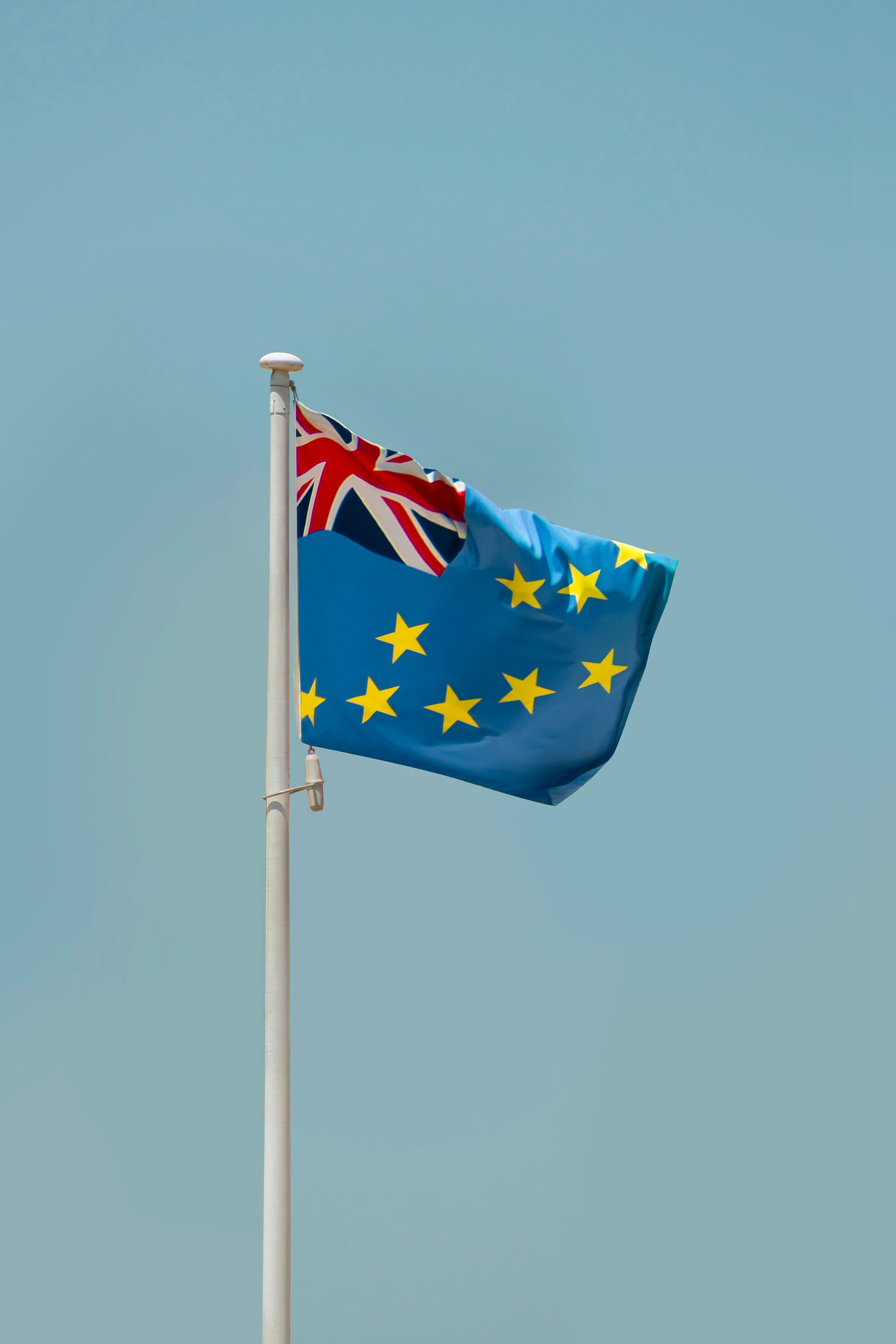Change Everything No 15: Green security in the Age of Shocks
Rethinking global relationships, reconsidering people and land, reviewing the Anthropocene
Book news
This is launch week - yeah! And so I’ve done the big unveil of Change Everything: How We Can Rethink, Repair and Rebuilt Society. You can buy it here (both the ebook and physical versions) if you haven’t already. And should you know a friendly bookshop owner who does events, I’m sure to be keen to visit! Please tell them to get in touch.
Green security policy
The House of Lords this month debated the UK’s “position on foreign affairs”. Conincidentally, it came the day before I was chairing in Brussels a launch event for the Green European Foundation about Geopolitics of a Post-Growth Europe.
I reflect often - have just been having a chat about science, and in January was reflecting on schools, prisons and welfare - how Victorian and earlier, and 20th-century ideas have proved dangerously and damagingly durable in our thinking. Technology has moved on, social innovation has dragged far behind.
When it comes to defence and foreign affairs, I hear again and again in the House, the same - in this case particularly dangerous - lack of innovation in mainstream thinking. Other political families are increasingly coming to Green ideas in social and environmental innovation - Greens have led and others followed on 20mph speed limits where people live, work and shop; on four-day weeks and universal basic income; not to mention the understanding that we have to live within the physical limits of this one fragile planet.
But defence is an area in which - beyond joining the majority of the world’s states in opposing nuclear weapons and understanding the need to end extractive, exploitative behaviours - we haven’t traditionally pulled together a complete set of policies, or tackled the challenges a post-growth Global North presents to military thinking.
The GEF report is a solid start at offering real alternatives in international relations and international security. And that leadership is urgently needed.
In the House of Lords I hear pretty well a single solution to the state of the world: more fighter jets, or warships, or soliders. Yet we don’t have the people, and we don’t have the resources. And the money might be directed instead to feeding or properly housing children, or many other urgent needs.
Okay, you might say this is the House of Lords, and we do have rather a lot of retired military people who dominate this political space. (I’ve been trying to get in for many days on defence questions to point out even the government has the Integrated Review of Security, Defence, Development and Foreign Policy (2021), although the 2023 “Refresh” of the document was very defence-based. And to ask the House to consider whether money would be better spent on diplomacy or aid than weapons. (In my own exercise of diplomacy I’ll probably avoid mentioning how well that spending isn’t going, following a string of Navy mishaps and demonstrations of military vulnerability.)
And we hear the same from the government: “British Secretary of State for Defense Grant Shapps has argued the world has entered a ‘pre-war’ period in which adversaries like Russia, China, North Korea and Iran pose an unprecedented threat. Making matters worse, Shapps said, is the deepening connection between these adversaries.” Talk of “a new Cold War” is now widepread.
This in an Age of Shocks where the world is facing multiple threats - climatic, biological (see Covid), economic, social (ageing societies, birth rates falling off a cliff). We cannot afford a new cold - let alone hot - global war. As the New York Times said last week: “Nuclear war is often described as unimaginable. In fact, it’s not imagined enough.” What we certainly have to say is that World War Three IS - HAS TO BE - unthinkable. But of course just saying it is not enough, we have to work out how to make sure it does not happen.
One issue on which I go into some detail in Change Everything is about resetting the UK, and other Global North nation’s relationship with the nations of the Global South—a growing, still relatively young part of the global population, as opposed to our direction. Rather than settling into a superpower struggle, we need to rebalance the world and ensure that countries with strong moral weight - say Barbados or Tuvalu on climate - are genuinely listened to and followed, and bigger nations such as Indonesia and Brazil play significant parts on the global stage.
Flag of Tuvalu - a reminder of colonial legacy. Photo by aboodi vesakaran on Unsplash
I’ve been, in a modest way, working on that in the area of anti-microbial resistance, on which there will be a high level meeting at the UN General Assembly in September. I was pleased to host an event led by the High Commissions of Barbados and Bangladesh, with representatives from 20 nations, in parliament, to talk about coordinating efforts for that. No one is safe until everyone is safe - we learnt that in Covid and it is particularly true for AMR. And we can all contribute to tackling the issue.
In the GEF report the important point is made that in geopolitical negotiations and manouvring it pays for other nations to sit on the fence, to play off the US, the EU and China, as well as the UK, against one another to secure trade, aid, investment and even security protection. And there are many reasons for them to not prefer us and our allies. Rather than finger wagging and trying to make them join “our side” we’d do better off acknowledging that and accepting it. As well as coming to terms with the reasons for suspicion about our motives.
Many nations and peoples do not see the Russian invasion of Ukraine as the imperialist, colonialist attack that it is, because they associate such behaviour with western Europe and the US. They see, rightly, that much of the injustice and suffering they experience today originates from us. They see the enforced austerity of the IMF, the predatory actions of western lenders, the corrupt behaviour of western mining companies, the refusal to open up the use of climate technologies and, crucially, the refusal to allow affordable access to essential medicines and vaccines with manufacturing close to where they are needed.
Look at the horrendous state of Haiti this week. The Guardian gives a good account of its story, summed up in one historical quote:
“I helped make Haiti… a decent place for the National City Bank boys to collect revenues,” Maj Gen Smedley Butler, a leader of the American forces in Haiti, wrote in 1935.
A couple of years ago, Labour’s Lord Griffiths of Burry Port gave a powerful, personal account of his experience there as a young teacher, finishing with the reflection “I would have loved to have moved that the Grand Committee take note of the impact of countries with democratic norms and values in creating autocrats, kleptocrats and populists.” Quite.
But back to the big picture today. Debt cancellation is an obvious area of urgent need. Through that we would, as the GEF report points out, ease the pressure on global South countries to sell off their biospheres and their lithospheres, and reduce the pressure to promote often exploitative labour conditions in export-orientated industries, when the efforts of their people could instead be directed towards delivering resilience and security, particularly food security, in the age of climate shocks.
The report also reflects on normative power—the power to exports one’s values—as an integral part of geopolitics and how living up to those values is crucial to being able to use that power for constructive good. Let’s not mention the Rwanda Bill, back in the House of Lords with ping-pong thise week. “Do as I say, not as I do,” is not going to hack it in the 21st century.
Picks of the week
Reading
This falls into the London Library “serendipitous pop-up in the catalogue” category. Marking the Land: Hunter-Gatherer Creation of Meaning in their Environment is a fascinating collection of essays that ranges widely on the top from the San of the Central Kalahari to the Inuit in the Eastern Canadian Arctic, from the Waripiri people in Central Australia to Amazonian rainforest foragers. It is one of those books that makes you realise just how narrow and limited our modern understandings and ways of looking at space, time and events is. Archaeologists tend to look at animal bones for evidence of what people ate, what the ecology was like at the time the animal died, how they were processed. But of course the distribution of animal carcases and pieces of them is a product of complex understandings and practices - religious beliefs, taboos, tastes, what’s available to different genders and ages.
And boundaries and ownership can have very different structures and meaning to the way we today approach them. So the Waripiri people could acquire an interest in land by birth, by adoption, or by learning about it, and the death of an individual could result in the reshuffling of these fluid boundaries.
I’ve got a weakness for fiction that tries to recreate human life in the distant past, when we walked on the land, literally knew it step by step, stored its knowledge in our bodies as well as our minds. Anyone to wants to write about these times really should read this book. (Or even if you fancy a bit of fantasy worldbuilding, there’s some amazing ideas here.)
Listening
I’ve never much got into US history; never quite understood the obsession that so many in UK politics have with it, but David Runciman’s Past Present & Future podcast series on the most significant elections in American electoral history (today’s release is up to 1936) is a great way to be reminded that this has never been a stable polity, or a democratic one, not helped by the constitution framed to protect the interests of slave-owners. The election of 1896 is when #BigMoney really comes into the picture, against the power of the people: plus ca change: in both states we get the politics the few pay for.
Lincoln - the whitewashed picture. Photo by Bee Calder on Unsplash
Thinking
The Anthropocene appears in the introduction to Change Everything, the book, and I’m sure in travelling the country talking about it, someone will say “ah but it is not a thing now”, after a committee of the international Subcommission on Quaternary Stratigraphy, that part of the International Commission on Stratigraphy (geologists) voted against identifying its start in 1950. Of course there are rows about the voting procedure (aren’t there always), but this piece in Nature does a good job of contextualising the decision.
This does not mean in anthropological terms we are not profoundly altering the planetary systems - perhaps most obviously climate, and knocking the Earth out of the Holocene stability of the past 11,000 years. But haven’t we - haven’t many species perhaps - always had planet-altering effects, from the cyanobacteria that oxygenated it (surely the most important and impactful “terraforming”, to the Spanish conquistadors possibly contributing to Europe’s “Little Ice Age”.
Hernan Cortez, conquistador and terraformer
Researching
And a reminder that the danger of unintended side-effects from human action continues comes from work on inactive deepsea hydrothermal vents, which had been thought to be “dead”, but have been found by researchers to be densely colonised by microbial life, which may be storing significant amounts of carbon. “We are just beginning to understand how the carbon cycle functions in the deep sea. It is certain that carbon is fixed at such hotspots.” So Norway, how about rethinking that deep-sea mining?!
Almost the end
Got to share this moment of fame. Thanks Shirley for naming “one of your most impressive hens” after me.
Photo by Ben Moreland on Unsplash (Not the actual “Natalie Bennett”.)
What did you think?
You can also find me on Instagram, Facebook, LinkedIn, TikTok and X.







